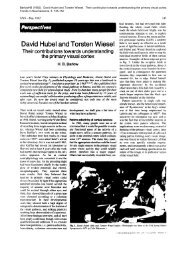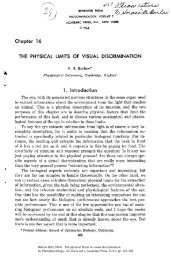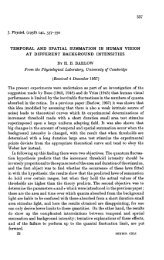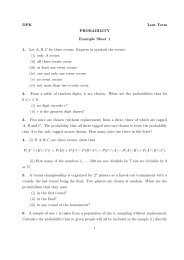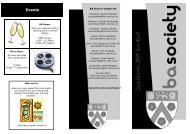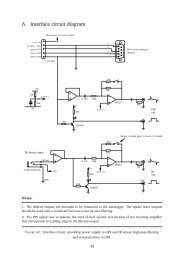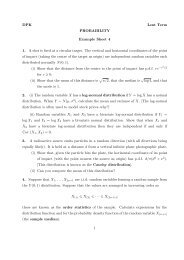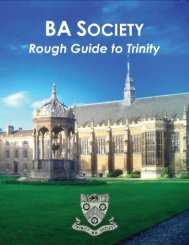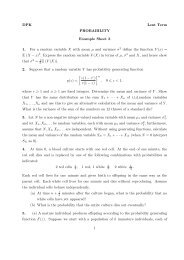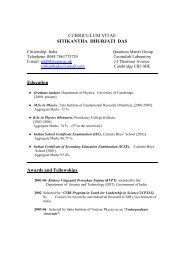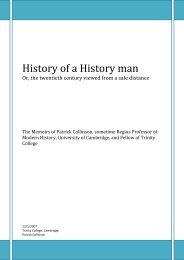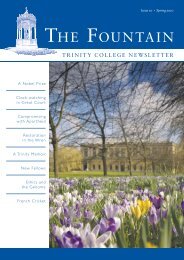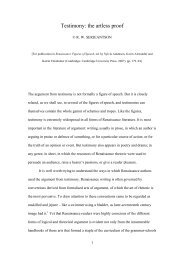Hume's General Rules - Serjeantson
Hume's General Rules - Serjeantson
Hume's General Rules - Serjeantson
Create successful ePaper yourself
Turn your PDF publications into a flip-book with our unique Google optimized e-Paper software.
<strong>Serjeantson</strong>-24<br />
of human understanding the venerable distinction between natural and moral<br />
philosophy. This refusal is implicit in the Treatise in the example of the man in the<br />
iron cage; it is made explicit in the Enquiry Concerning Human Understanding when<br />
Hume states that natural and moral arguments are ‘of the same nature, and derived<br />
from the same principles.’ 76<br />
‘The chief business of philosophers’<br />
Hume never lost his conviction that philosophers were distinguished from the ‘vulgar’<br />
by their ability to subsume the circumstantial multiplicity of experience within<br />
effective general rules. 77 He did restrain his desire to provide a formal account of this<br />
procedure, however, as can be seen when we turn to consider the role of rules and<br />
circumstance in the two Enquiries. Hume advertised the Enquiry Concerning Human<br />
Understanding (1748), as containing ‘most of the principles, and reasonings’ of the<br />
Treatise. The part of this Enquiry that corresponds most closely to the account of<br />
‘general rules’ in the Treatise (1.3.13) is a footnote in section five attacking the<br />
conventional distinction made between ‘reason’ and ‘experience’. Here Hume<br />
explains that all the sciences--whether natural, moral, or political--‘will be found to<br />
terminate, at last, in some general principle or conclusion, for which we can assign no<br />
reason but observation and experience’, and he goes on to equate these principles with<br />
‘general and just maxims’. 78<br />
76 Hume, Enquiry Concerning Human Understanding, p. 69.<br />
77 Here I am in agreement with Hearn, ‘<strong>General</strong> rules in Hume’s Treatise’, p. 406, who notes that ‘a<br />
natural tendency requiring correction by general rules […] can be said to represent one of the basic<br />
ingredients in Hume’s account of human nature and experience.’ It follows that I dissent from the<br />
conclusion of Noxon, Hume’s Philosophical Development, p. 192, that the later Hume decided that ‘the<br />
student of nature has more to learn from history than from the experimental method’; Hume did not<br />
regard the two as contradictory.<br />
78 Hume, Enquiry Concerning Human Understanding, pp. 1, 37-38 n. 8.



